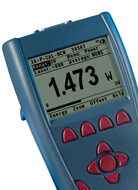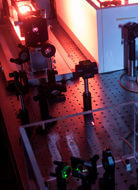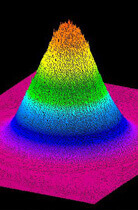Contact
DFM A/S
Kogle Allé 5
DK-2970 Hørsholm
Denmark
Tlf: +45 7730 5800
E-mail: [email protected]
CVR/VAT#: DK29217939

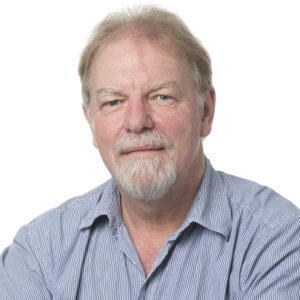
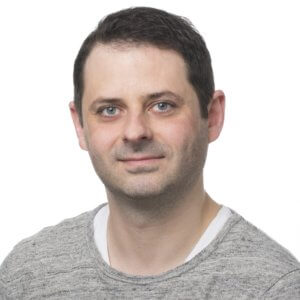
OPTIcal measurements and calibration
We ensure that your optical equipment measures correctly
The standard radiometric services provided by DFM are listed below.
The photonics group also carry out a number of research projects in the field of optics.
Read more about the research projects here.
Feel free to contact us if you are developing a product or if you need to apply optical characterization methods.
STANDARD services
Detector and Powermeter calibration
With traceability to the Danish primary reference, detectors and powermeters are calibrated with regards to responsivity in terms of power within the visible and infrared wavelength range. Additional services include measurement of linearity.
Technical information on the calibration is available here.
Fibre optic attenuator calibration
Fibre optic attenuators are calibrated using a Germanium detector.
The calibration of fibre optic attenuators ensure an accurate determination of the attenuation of the optical radiation.
The calibration is accredited under DANAK (accreditation no. 255).
Technical information on the calibration is available here.
Wavelength
Calibration of optical wavelength is performed using lasers stabilised to molecular reference lines. The following measurements and calibrations are offered:
- Measurement of laser wavelength
- Measurement of wavelength for light emitting diodes (LEDs)
- Calibration of optical spectrum analyzers
- Calibration of wavemeters
All of the above calibration services are DANAK accredited (accreditation no. 255).
Technical information on the calibration is available here.
RIN measurements
DFM offers measurements of Relative Intensity Noise (RIN), an important parameter for the characterization of lasers within optical communication, bio-optics, LIDAR sensing and other areas. RIN is specified as the relative power density over a specific frequency range, measured in dBc/Hz. The features of our service include.
- Advanced self-homodyne detection
- Wide wavelength range
- High bandwidth
- Low noise floor
Read more in our leaflet here.
OTDR calibration
A mission-critical fibre network with low downtime requires an efficient localization of errors using an OTDR (Optical Time-Domain Reflectrometer). DFM offers accredited distance scale calibration of OTDR units, resulting in a more precise fault location and lower maintenance costs.
- Single-mode fibres
- Standard wave lengths (1310 nm and 1550 nm)
Read more in our leaflet here.
ULTRA VIOLET RADIOMETRY
Ultraviolet (UV) light is characterized by a high photon energy that can break organic chemical bonds. For this reason, UV light can have a large impact on biological and chemical systems. This opens for a large number of applications of UV light including sterilization, hardening, chemical sensors, formation of vitamin D and treatment of skin conditions. UV light can also have detrimental effects e.g. breakdown of materials and damage to DNA.
For a given application, small differences in the composition of the light can mean the difference between a beneficial and damaging effect. The most critical parameter is the wavelength of the light, as this determines the type of chemical bonds that can be broken, but accumulated energy is also important in many cases.
To ensure optimal and safe use of UV light it is necessary to characterize the light accurately. DFM has developed services for traceable measurement of UV light with a special focus on measurement of UV LED’s that are replacing classical UV sources.
DFM is accredited for measurement of spectral radiance and irradiance in the wavelength range from 290 nm to 800 nm. This covers most UV sources to be characterized. High power light sources and/or sources with wavelengths down to 200 nm can be characterized traceable to the SI. Measurements at DFM include estimation of uncertainties associated with the result or calibration.
DFM can also perform photobiological safety evaluation and classification for light sources. Such an evaluation is often critical for the safe use UV and blue light sources (Blue light hazard).
On several occasion DFM has performed specialized measurements and consulting concerning UV light and are used to meeting the varied requirements that are present in industry. If your company have questions to or challenges regarding UV light you can contact DFM for a quotation.
Calibration of equipment for measurement of laser beam diameters
DFM can calibrate equipment that is use for the measurement of the diameter of a laser beam. We use a reference laser with a wavelength of 1542 nm and a power up to 0.5 W. The calibration is not under acreditation. However, the diameter of the beam of the reference laser has been measured with traceability to one of DFM’s primary length references.
DFM can calibrate laser beam profilers with a relative measurement uncertainty about 1.5 %.
OPTICAL properties of polymers
Optimal use of polymers in the industry requires in-depth knowledge of the physical properties. At DFM we have the competences required to measure absorption and transmission of light in polymers. Our measurement capability covers both the visible range, and the UV range.
The application cover medical and pharma industries where UV light is used for sterilization of surfaces, for instance. The optical propertoies are also relevant for polymer films used for wrapping foods and goods.
The measurement services were developed in the innovation consortium BioFors funded by the Innovationsfonden (Innovation Fund Denmark).
Product information and pricing
Please refer to DFM’s price list here.

